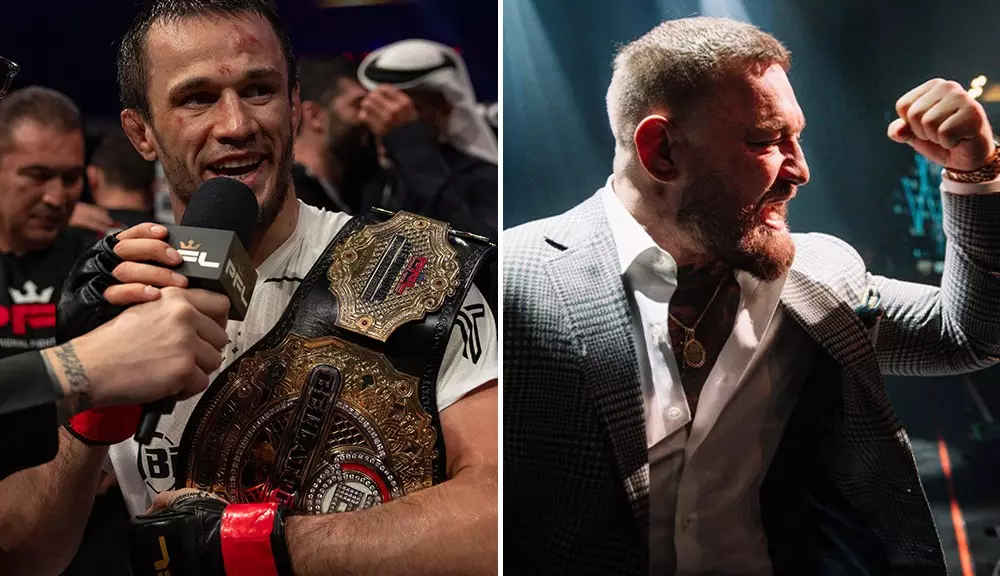Recent events in the mixed martial arts (MMA) community have ignited a conversation about conduct, accountability, and the influence fighters hold as role models. The bout between Paul Hughes and Usman Nurmagomedov at the PFL Champions Series: Road to Dubai concluded with Nurmagomedov securing a majority decision victory over Hughes. This outcome sparked a strong reaction from Conor McGregor, who openly criticized Hughes for displaying amiable behavior towards Nurmagomedov and his camp post-fight. McGregor’s call for loyalty, particularly in the context of his own historic rivalry with the Nurmagomedov family, reflects a deeper issue surrounding expectations of sportsmanship and camaraderie among fighters.
McGregor’s Expectations and Hughes’ Response
Conor McGregor’s disappointment with Hughes touches upon an unspoken code within fighting culture. He perceives Hughes’ friendliness towards his opponent as a betrayal, indicative of a culture that values fierce loyalty over decency. However, Hughes himself has distanced from this notion, stating that he can no longer idolize McGregor due to the latter’s controversial personal life and legal troubles. This exchange showcases a shifting moral landscape in MMA where fighters are held to varying standards based on their public personas.
McGregor’s fierce criticism, suggesting that Hughes should embody a warrior-like mindset, contrasts sharply with Hughes’ more pragmatic approach to competition. Rather than viewing UFC fighters merely as rivals, Hughes seems to represent a new generation that embraces sportsmanship and respect, even amid competitive tension. This ideological split brings to light the issue of how adversarial relationships can evolve and the responsibility athletes carry as public figures.
Usman Nurmagomedov’s Insight and Responsibility
Nurmagomedov offered his perspective on the matter, emphasizing the importance of being a positive influence for younger fans who look up to fighters as examples. His discussion on accountability presents a perspective that highlights the athlete’s role beyond mere competition: as mentors navigating the complexities of fame. Nurmagomedov understands that while he is flawed, he is cognizant of the need to model better behavior since fans are always watching.
His assertion, “You have to be a good example,” speaks volumes not just in the context of competitive sports but also within society at large. The implications of an athlete’s conduct extend beyond the octagon and can influence the ideals and expectations of their young audience. This notion challenges McGregor’s approach, which, while grounded in a fierce warrior spirit, may lack the nurturing aspect that comes from being a responsible role model.
As MMA continues to grow in popularity and influence, the dynamics of athlete conduct and public expectations will evolve as well. The contrasting attitudes displayed by McGregor, Hughes, and Nurmagomedov mark a cultural shift in how fighters relate to each other and to their fanbase. As the sport matures, it will be interesting to see how these debates shape the futures of both the athletes and their communities, possibly paving the way for a more inclusive and respectful environment in the world of combat sports. In the end, whether through rivalry or respect, the ultimate challenge lies in balancing personal ambition with the responsibility that comes with being a visible public figure.

